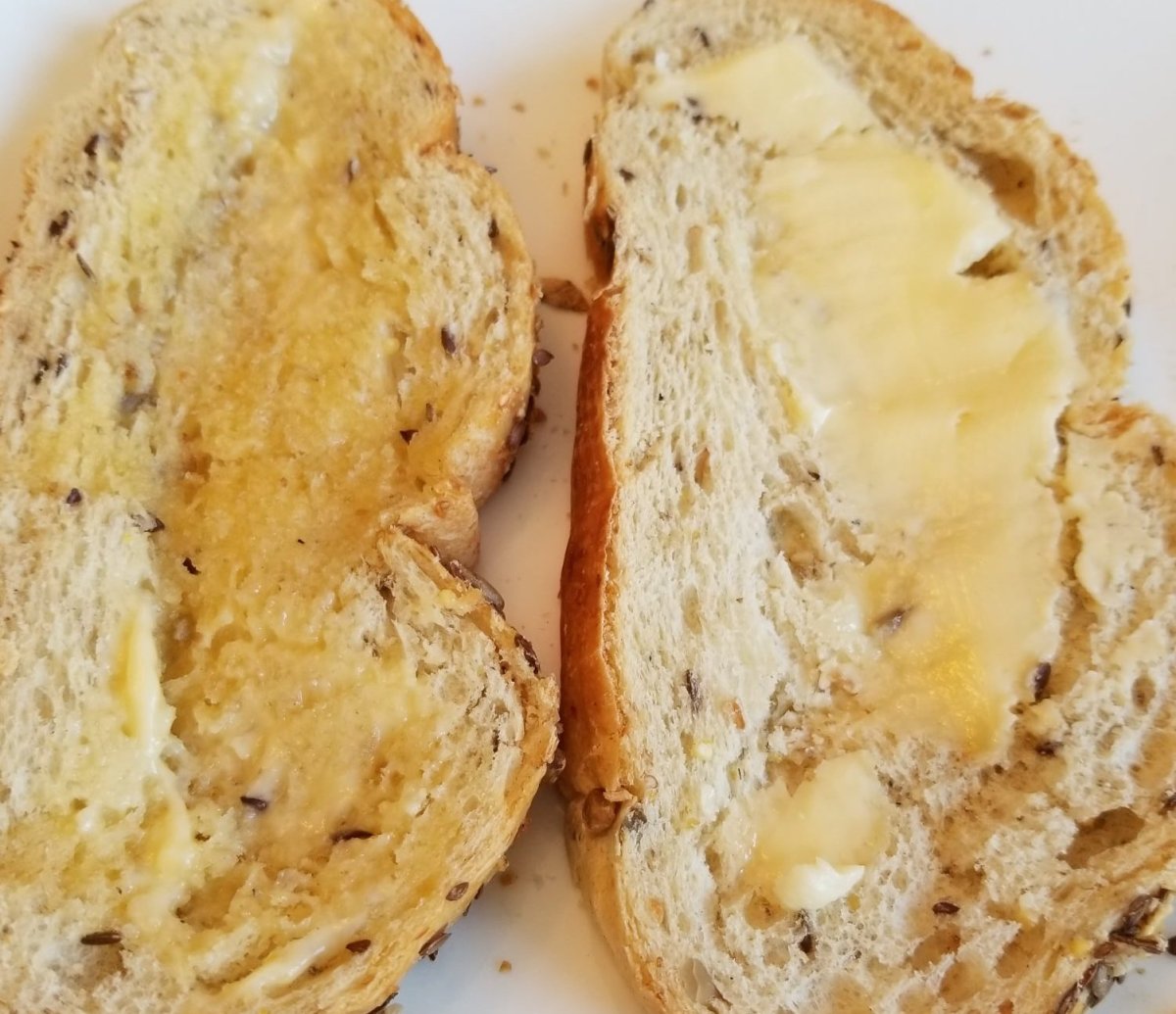An agri-food analyst at Dalhousie University is churning up questions about the hardness of Canadian butter.

Sylvain Charlebois believes some farm practices are raising ethical questions about the purity of this country’s dairy products.
Charlebois, the senior director of the agri-food analytics lab at the university, said butter smells and acts differently, and it seems harder than usual.

He conducted his own non-scientific experiment at his home last weekend, buttering one piece of toast with organic butter and a second with non-organic, traditional butter. Charlebois said the organic butter smelled better, melted more quickly and spread more easily.
He said some scientists believe dairy farmers are adding palm oil to cows’ feed.
“Some research suggests that if you actually feed dairy cows with more palmitic acids you will increase the butterfat content in milk,” Charlebois said.

Adding palm oil helps dairy farmers increase production, he said, while also increasing saturated fat in butterfat, making butter harder and more difficult to spread.
“There is no link between animal science — how we’re feeding animals — and how those practices are impacting food science and the quality of products sold at retail,” Charlebois said. “Furthermore, we just don’t know, over time, how the quality of these products can impact the health of consumers, which is even more troubling.”
National advocacy group Dairy Farmers of Canada announced Friday that it will be striking a working committee to examine any issues, including those raised by consumers.
In a news release posted on its website, the organization said the use of “palm fat in dairy feed is not new and is a safe ingredient.”
Daniel Lefebvre, the chief operating officer of Lactanet, said it’s not clear how many dairy farmers are using palm oil but he said he does not believe the practice has increased recently.
“What we do know is, because palmitic acid is already the predominant fatty acid in cows’ milk fat, the addition of palm products in a cow’s ration has very minimal impact on the total amount of saturated fatty acids in cows’ milk,” Lefebvre said. “There’s no reason to believe, because of this very small change in the composition, that it would have any significant impact on human health.”
Lefebvre also said seasonal differences in butter have been widely known for generations.

“Summer butter is always softer than winter butter because cows are fed more fresh grass or on pasture,” Lefebvre said. “And those bring more unsaturated fats in the butter and that makes it more spreadable. In winter conditions — like now — butter is always harder.”
Charlebois said he would like to see more transparency from dairy boards and organizations throughout the country.
“They should be the ones telling the public what actually is going on on farms instead of hiding behind a blue cow (logo),” Charlebois said. “It needs to be more specific in terms of what’s going on on farms and what farmers are actually doing with their animals.”
- Gas prices in Ontario, Quebec to jump to highest level in 2 years: analyst
- Shoppers faces proposed class action over claims company is ‘abusive’ to pharmacists
- ‘Bacterial vampirism’: Deadly pathogens attracted to human blood, study finds
- What’s going on with the Cybertruck? Tesla seems to have halted deliveries





Comments